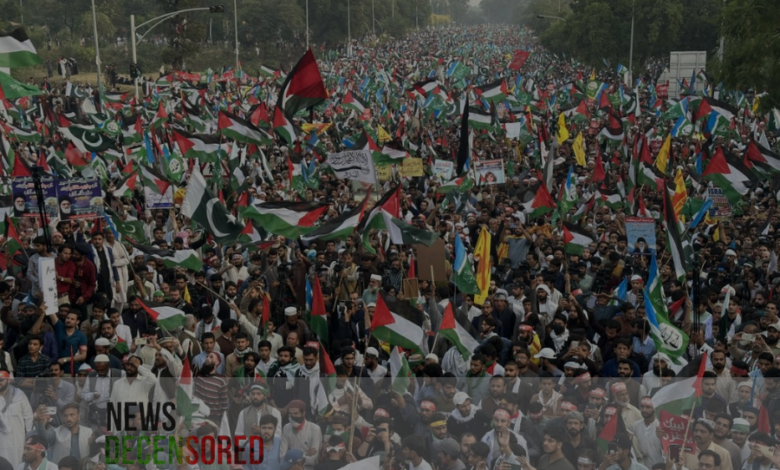Tensions between Spain and Israel escalate as Madrid expresses support for Palestine

After Spain recognized the Palestinian state, Pedro Sanchez met with his Palestinian counterpart, Prime Minister Muhammad Mustafa, and prominent officials from several Middle Eastern countries in Madrid.
Saudi Foreign Minister Prince Faisal bin Farhan Al Saud, Qatari Prime Minister Sheikh Mohammed bin Abdulrahman Al Thani, and the foreign ministers of Turkey and Jordan were among the group who later took a photo on the steps of Moncloa Palace in the Spanish capital.
Ireland, Norway and Slovenia also joined Spain in the campaign, which Israel strongly condemned. Israeli Foreign Minister Yisrael Katz sent an angry direct message to Sanchez on Channel Southern Israel on October 7.
He accused Spain of complicity “in incitement to genocide against Jews and war crimes”. He described Spain’s Deputy Prime Minister, Yolanda Díaz, as anti-Semitic after she ended her speech with the pro-Palestinian slogan “ From the river to the sea .”
The slogan is widely used in pro-Palestinian demonstrations. It refers to the borders of the British Mandate of Palestine, which extended from the Jordan River to the Mediterranean Sea before the creation of Israel in 1948.
Diplomatic relations between Israel and Spain sank to new lows for several months. Each side recalled its ambassadors as the war raged in Gaza. After the historic step taken by Spain, Israel ordered the Spanish Consulate in Jerusalem to stop services provided to Palestinians in the occupied West Bank as a “punitive” measure.
Tensions are sure to escalate further, as they did in Spain on Thursday, announced it will join the genocide case brought by South Africa before the International Court of Justice against Israel’s actions in Gaza.
Spain is the first European country to support this issue. Spain has long supported Palestinian rights and has led efforts toward its recognition in the hope of paving the way for peace and a two-state solution.
Sanchez said, “The historic decision… has one goal: to help the Israelis and Palestinians achieve peace.”
According to some observers, pressure from Somar, a far-left party and junior partner in the Spanish coalition government, influenced Sánchez’s final decision. Sánchez is also planning to host an international peace conference in Madrid.
But Manuel Muniz, dean of the School of Politics, Economics and World Affairs at IE University in Madrid, said Israel may oppose Spain’s participation in future peace talks.
In terms of the impact on Spanish-Israeli relations, it is pretty clear that the short-term effects are significant,” he said.
What is still unclear is the impact all of this will have in the long term. This may mean that Israel will reject Spanish participation in future peace talks with the Palestinians. However, this will depend on the nature of the government in Israel.
Isaias Parrenada Bajo, a specialist in relations between Spain and Palestine at the Complutense University of Madrid, said the unilateral recognition of Palestinian statehood culminated in years of inter-party politics in Spain.
Sanchez focuses on Palestine and Ukraine before the European elections. “His Socialist Party believes that supporting Palestine might bring support in the country’s European elections.




